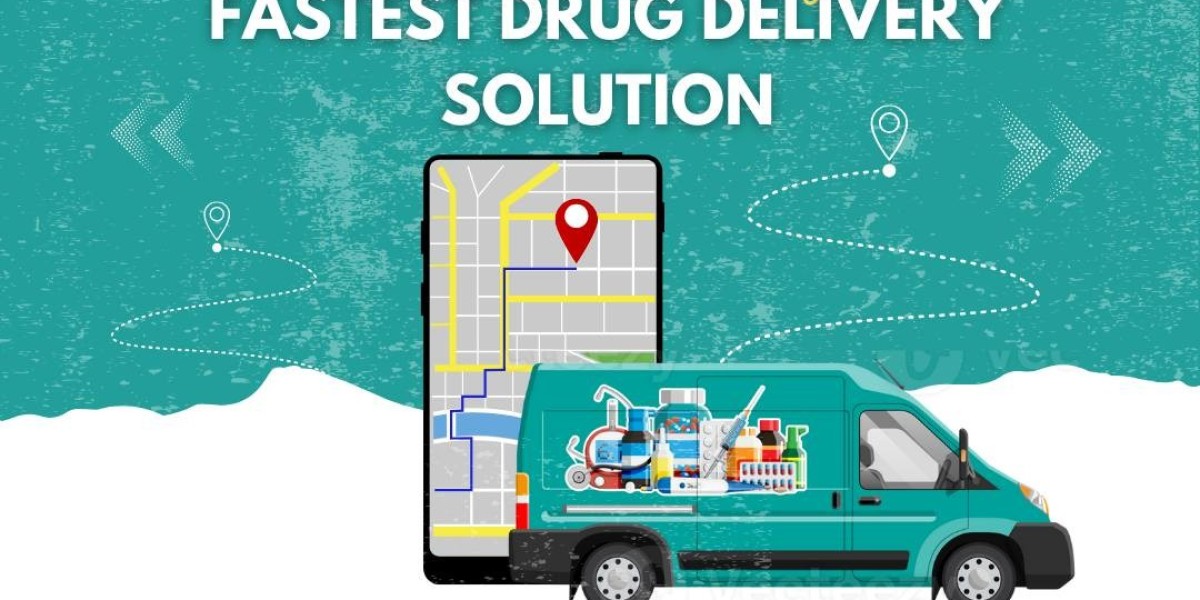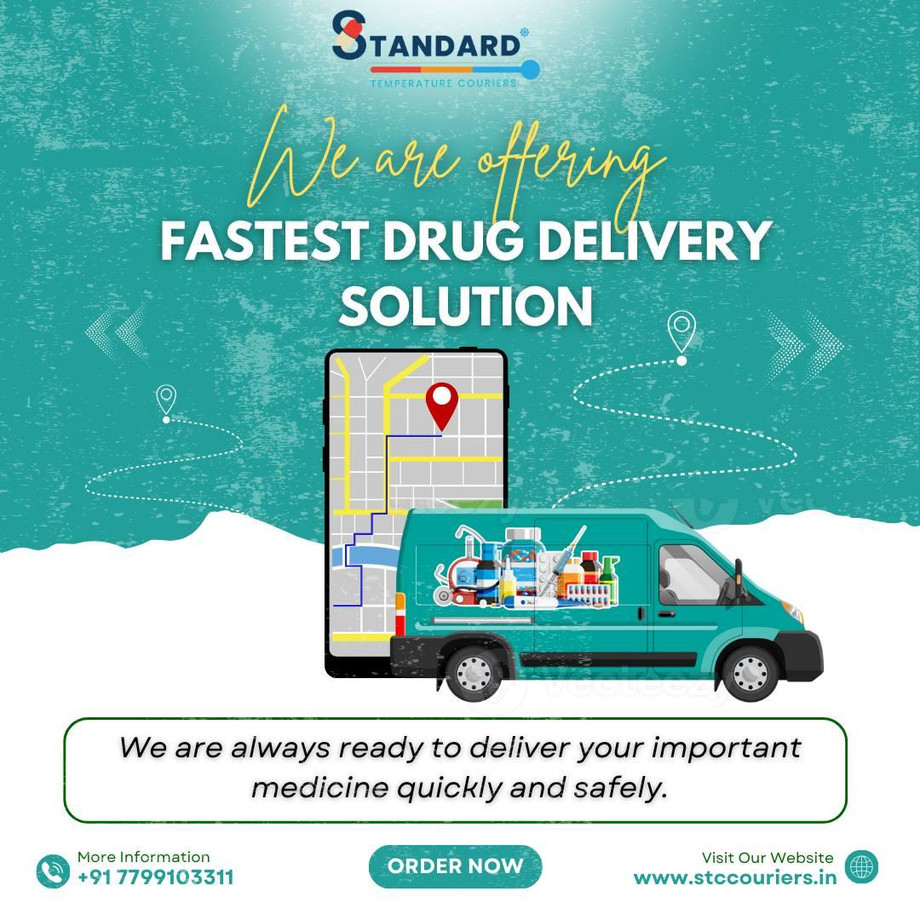In healthcare and pharmaceuticals, one of the most critical factors for ensuring the safety and efficacy of medical products is temperature control. From vaccines and biological samples to insulin and advanced cell therapies, many of these products are temperature-sensitive and require stringent conditions to maintain their potency. Here is where cold chain logistics plays an indispensable role. By ensuring optimal conditions during storage and transportation, cold chain logistics not only protects the integrity of these products but also enables a revolution in the global healthcare and pharmaceutical delivery landscape. Companies like STC Couriers are at the forefront of this transformation, leveraging advanced technology and specialized logistics to keep vital supplies safe, effective, and available worldwide.
Understanding Cold Chain Logistics
Cold chain logistics refers to the technology and processes designed to maintain temperature-sensitive products within a specific range throughout the supply chain—from production to end-use. The cold chain involves an integrated system of refrigerated production, storage, distribution, and transportation facilities. In the healthcare and pharmaceutical industry, this infrastructure ensures that drugs, vaccines, and biological materials remain effective until they reach patients, no matter the distance or duration of transit.
Temperature-controlled logistics often fall within ranges like 2–8°C for refrigerated products, -20°C for frozen goods, and even -80°C for ultra-low temperature materials like certain vaccines and biological samples. As healthcare products become more specialized, the demand for precise cold chain logistics has only increased, making it a critical component of modern medicine.
The Importance of Cold Chain Logistics in Healthcare and Pharmaceuticals
Cold chain logistics is especially significant in healthcare and pharmaceuticals for several reasons:
Ensuring Drug Potency and Safety: Many drugs and vaccines are highly sensitive to temperature variations. When exposed to temperatures outside their prescribed range, they risk degradation or contamination. Cold chain logistics ensures these products maintain their intended efficacy, directly impacting patient safety.
Maintaining Regulatory Compliance: Global regulatory bodies, like the FDA, EMA, and WHO, have stringent guidelines for the storage and transportation of pharmaceuticals. Adherence to cold chain logistics is essential for compliance, as it minimizes the risk of product recalls and regulatory penalties.
Supporting Global Health Initiatives: With advancements in healthcare and the rise of infectious diseases, global health programs rely heavily on the effective distribution of vaccines and essential medications. Cold chain logistics is crucial to ensure that these supplies reach developing and remote regions safely.
Reducing Economic Losses: Temperature excursions during transit can lead to significant financial losses. Cold chain logistics helps avoid product spoilage, preventing wastage and cost inefficiencies across the supply chain.
Key Technological Innovations Driving Cold Chain Logistics
Recent technological advancements are transforming how companies manage cold chain logistics, making it more efficient, secure, and transparent. STC Couriers, for example, incorporates some of the following cutting-edge technologies in its cold chain operations:
IoT-Powered Temperature Monitoring: IoT-enabled sensors allow real-time temperature monitoring throughout the logistics chain. These sensors can provide immediate alerts if temperature fluctuations occur, enabling corrective action to be taken promptly.
GPS and Route Optimization: Efficient routing not only improves delivery times but also ensures products spend minimal time in transit, reducing exposure to potential temperature risks. GPS technology assists in live tracking and enhances route planning, optimizing delivery schedules and ensuring timely arrivals.
Data Logging and Blockchain for Traceability: Data logging devices continuously record temperature and environmental conditions, offering a full history of the product’s journey. Blockchain technology, combined with data logging, provides transparent, immutable records, ensuring traceability and accountability in the cold chain.
Advanced Packaging Solutions: Specialized insulated packaging and cooling materials, such as phase-change materials and vacuum-insulated panels, protect sensitive items from temperature fluctuations during transit. These solutions are particularly beneficial for long-distance and international deliveries.
Automated Cold Storage Facilities: Automated warehousing systems enhance accuracy, efficiency, and consistency. Automated cold storage solutions maintain the exact temperatures required for specific products, reducing the risk of human error in handling and storage.
Case Study: The Role of Cold Chain Logistics in Vaccine Distribution
One of the most striking examples of the impact of cold chain logistics is the recent distribution of COVID-19 vaccines. Unlike traditional vaccines, some COVID-19 vaccines require ultra-cold temperatures, making their distribution challenging. Cold chain logistics providers like STC Couriers were pivotal in ensuring safe delivery by implementing specialized storage, monitoring, and handling solutions.
Through carefully controlled cold chain logistics, STC Couriers enabled millions of vaccine doses to reach clinics, pharmacies, and vaccination centers worldwide. This effort not only underscored the importance of temperature-controlled logistics but also highlighted the logistical challenges that can be overcome with innovation and expertise.
Benefits of Cold Chain Logistics for Pharmaceutical Companies
Cold chain logistics offer numerous benefits for pharmaceutical companies, enabling them to:
Expand Market Reach: By ensuring product integrity across long distances, pharmaceutical companies can reach global markets with high-quality products, providing essential drugs to areas that were previously inaccessible.
Enhance Brand Trust and Reputation: Consistency in quality is essential in pharmaceuticals. Cold chain logistics guarantees product stability, allowing companies to build trust and reliability among consumers and regulatory bodies.
Facilitate Innovation in Drug Development: As pharmaceutical companies innovate with new formulations and biologics, the role of cold chain logistics becomes crucial in ensuring these advanced treatments reach patients safely.
The Future of Cold Chain Logistics in Healthcare
The future of cold chain logistics in healthcare looks promising, with numerous innovations on the horizon. Companies are exploring eco-friendly cooling solutions, electric and autonomous refrigerated vehicles, and AI-based predictive analytics to further enhance logistics efficiency and sustainability. These advancements not only promise to lower costs and reduce environmental impact but also support the continued delivery of safe, temperature-controlled healthcare products to patients across the globe.
Conclusion
Cold chain logistics has become a cornerstone of healthcare and pharmaceutical delivery, enabling the safe and efficient transportation of life-saving medications and treatments. With the integration of technology and innovation, companies like STC Couriers are leading the charge in transforming cold chain logistics, ensuring that patients receive high-quality healthcare products wherever they are. As the demand for precision in healthcare grows, the importance of cold chain logistics in the industry will only continue to increase, shaping a future where access to essential medications is guaranteed, no matter the distance.











